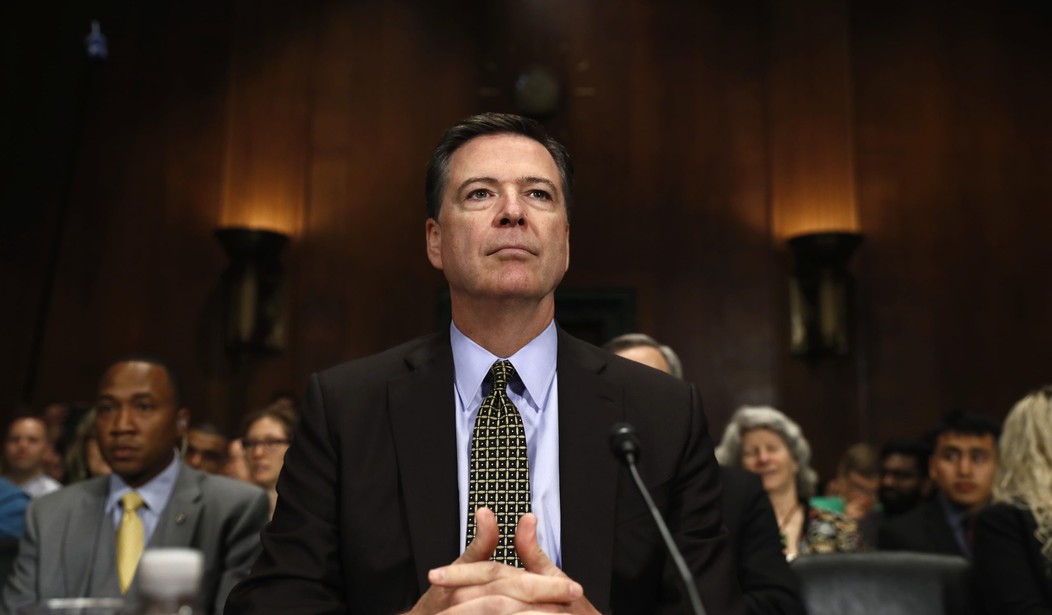WASHINGTON — The White House said it will not try to stop former FBI Director James Comey from testifying Thursday before the Senate Intelligence Committee.
“The president’s power to assert executive privilege is well-established,” said press secretary Sean Spicer in a statement. “However, in order to facilitate a swift and thorough examination of the facts sought by the Senate Intelligence Committee, President Trump will not assert executive privilege regarding James Comey’s scheduled testimony.”
Spicer said last week that whether executive privilege would be invoked to stop Comey’s testimony was still being reviewed. Some legal observers speculated that a Trump assertion of executive privilege would be hampered by the president’s public conversations about his interactions with Comey, such as in the interview with NBC’s Lester Holt.
The Comey hearing will be preceded Wednesday by an open Senate Intelligence hearing on FISA legislation with Director of National Intelligence Dan Coats and National Security Agency Director Adm. Mike Rogers.
“The press has reported that both of those individuals had some level of pressure from the president to downplay the Russian investigation,” Intel Committee Vice-Chairman Mark Warner (D-Va.) told CBS on Sunday. “I want to ask those individuals directly, did they have that kind of pressure, can they report on those conversations they had with the president, because it would be very concerning.”
“And then, obviously, Thursday, we have former FBI Director Comey. And I think we have known since Watergate that rules of the road were, you know, a president shouldn’t intervene in an ongoing investigation, particularly the case if it involves individuals that are close to that president,” he added. “And it would be unthinkable if the president actually did what was reported, asked FBI Director Comey to, in effect, back off of at least the investigation into General Flynn.”
Trump allegedly asked Comey to “let go” of the investigation into Flynn and his Russia ties, a meeting that Comey chronicled in a two-page memo, the New York Times reported in May. The existence of the memo, written by Comey “immediately” after the meeting, was shared “with senior FBI officials and close associates,” according to the report.
Comey will also likely field questions about reports that, just after taking office, Trump asked the FBI director for his loyalty. As in past hearings when he was still head of the FBI, Comey isn’t expected to reveal details of the ongoing investigation into potential ties between the Trump camp and Russia.
Warner said he wants Comey to publicly “reinforce, one, the fact that the Russians directly intervened in our elections, which everybody accepts, except for the president and maybe Vladimir Putin.”
“And, two, I want to know what kind of pressure, appropriate, inappropriate, how many conversations he had with the president about this topic? Did some of these conversations take place even before the president was sworn in?” he said. “And I think Jim Comey deserves to have his, in effect, day in court, since the president has disparaged him so much.”
Sen. Susan Collins (R-Maine), also a member of the Intel Committee, told CBS Sunday that “there is so much speculation and so many stories and so many leaks, that it is very difficult to determine the facts of the Russian involvement in our elections last fall, the extent to that — of that involvement, and also whether or not there was collusion or collaboration with members of President Trump’s campaign team.”
“And that is why the hearings this week are so important, particularly the hearing on Thursday with Mr. Comey. This will give us a chance to give his perspective on the issue of Russian involvement and also on the issue of collaboration or collusion,” she said. “What has he seen? What initial judgments has he made?”
Collins said she’s eager to ask Comey about Trump’s letter in which he fired the director and wrote, “”While I greatly appreciate you informing me, on three separate occassions, that I am not under investigation, I nevertheless concur with the judgment of the Department of Justice that you are not able to effectively lead the bureau.”
Collins said Trump’s phrasing “raises a lot of questions in my mind.”
“Does Mr. Comey agree that that is what was said? Why would he tell the president that? What was the tone and the context of those discussions on three different occasions, if they, in fact, are accurately portrayed in this letter?” she asked.
On the Flynn conversation, she said, “If the president said, look, I just fired the guy, I feel bad for him, what do you think is going to happen, that is one thing.”
“If, on the other hand, the president said to Mr. Comey, I want you to end this investigation of General Flynn, I want it ended now, and if you don’t do so, you are going to be in trouble, that is a whole different nature of a conversation,” Collins continued. “And that is why the tone, the exact words that were spoken and the context are so important. And that is what we lack right now. And we can only get that by talking to those directly involved.”









Join the conversation as a VIP Member